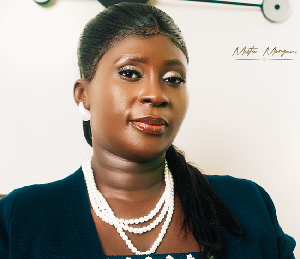Although data show banks have developed a high taste for lending to government, industry players say the sector is ready to support businesses get back on their feet despite the risk in doing so.
According to the banking sector report (March 2021) published by the Bank of Ghana, the asset structure of the industry shows investment in government instruments for the first two months of the year made up 43.1 percent, while net advances – loans given out – formed just 28 percent.
What this simply means is that banks are pushing more money into buying long-term Treasury bills rather than giving such monies as loans to businesses due to risk associated with the latter.
Again, the data show banks’ investments (monies pushed into government instruments) shot up by 45.9 percent to GH¢67.9billion, compared to growth of 7.2 percent in the prior year (February 2020). This yielded the intended results, as the composition of banks’ income shows return on such investments alone formed more than 51 percent.
However, during a panel discussion at the maiden edition of The Money Summit organised by the Business and Financial Times (B&FT), industry experts said the development does not imply banks are unwilling to support businesses, but rather they are only being cautious by investing more in government bills as the pandemic’s impact on the private sector has made it more vulnerable – thereby increasing the risk of default.
“The banks are ready to support the real sector, and indeed we prefer supporting the real sector rather than lending to government because it is more profitable. What we do is take calculated risk, and ensure that while we do so we also strengthen our capacity to continue supporting the economic growth agenda.
“If you take unnecessary risk and put yourself in a situation where your capacity to support the economy is impaired, then you will have a situation wherein you have a financial crisis beginning from the financial sector and reducing the capacity of banks to support the economy. So, as much as we are willing and able to support the real sector, we want to make sure we don’t take uncalculated risk which may become a problem for the sector itself,” said the Chief Finance Officer of Fidelity Bank, Atta Yeboah Gyan.
Also commenting on the subject, Country Senior Partner of PwC, Vish Ashiagbor, agreed with the notion that the current economic situation has heightened the risk of lending to the private sector; hence banks’ desire to invest in safe ventures. However, he added, banks are still doing their best to support the private sector even in these challenging times.
“Most certainly, I do believe that banks are ready to support the economy because it is in the interest of all of us, including the banks, to have a strong economy. So, to the extent that they are able to do so in a safe manner, I think that banks do stand a chance of supporting the economy.
“They have to make a return for their investors and other stakeholders, so they have to look at where they can get the best returns. That does not mean they must exclusively put all their money into government bills. All banks still do lend to the real sectors of the economy. It’s just that the incentives for lending to government at this particular time are high, and therefore they may go in that direction rather than the private sector. But that is not to say that they are not supporting the real sector,” he said.
Professor of Finance at the University of Ghana, Prof. Godfred Bokpin, also reiterated that the COVID-19 has made it riskier for banks to lend to the private sector as the cost of lending to government is cheaper and safer. Hence, the onus rests on government to close the fiscal gap so that banks will have no other option than to channel their resources to the private sector in the form of affordable loans.
“It is because COVID has made lending to the private sector riskier that banks want to put their monies where it is safe, even though the yield is slightly lower. And the cost of lending to government is far cheaper than to the private sector, because for private sector you have to do creditworthiness checks and all that.
“And they are also lending to government because it has signalled higher borrowing requirements through the higher deficit. When government itself says it will borrow more, banks will only prepare themselves to fill that gap. Government needs to narrow the deficit so that the borrowing requirement narrows. When that happens, banks will have no option than lending to the private sector,” he said.
Adding his voice to the risk of lending to the private sector, Managing Director of FBN Bank Ghana, Victor Yaw Asante, commented that the challenges of collateral and assessing the creditworthiness of individuals are among the reasons which discourage lending.
“When we say we are cautious with lending, it means that if you give me collateral, what is the worth of that collateral? Can I enforce it? For example, if you give me a house I have to go to Lands Commission to find the proper title. The second part is actualisation of the collateral; so if you default, I have to go to the court system. The court system also has its own issues, which means it may take a while.
“I must fix all of that. Until we fix the collateral system, we also have the credit bureaus that are working. The collateral register works; we have people who are serial fraudsters, and once we identify and take them out we can create our collateral properly,” he said.
Business News of Wednesday, 26 May 2021
Source: thebftonline.com













